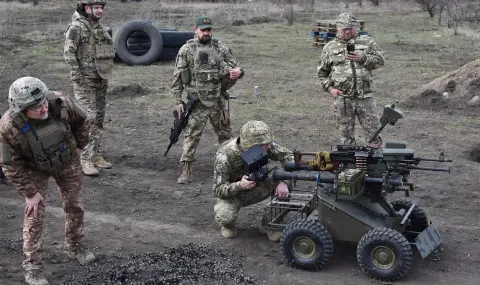By agreeing to a temporary ceasefire after the talks in Jeddah on March 11, Ukraine secured the resumption of military aid from the United States, which was suspended after the spat between Presidents Volodymyr Zelensky and Donald Trump at the White House. After Russian President Putin's conversation with US envoy Steve Witkoff, it became known that he would convey Russia's conditions for a ceasefire to Donald Trump. A conversation between Trump and Putin is also scheduled. There is reason to talk about "cautious optimism", said Kremlin spokesman Dmitry Peskov. The very same phrase was previously used by US National Security Advisor Michael Walz. US President Trump described Russia's reaction as "promising but incomplete". The Russian head of state had formulated a number of questions that he wanted to be answered before discussing the ceasefire - for example, how to defend the Kursk region and generally how to resolve other issues along the entire front line, which is nearly 2,000 km long.
Ukraine's position now seems more stable than a few days ago, when it was unclear whether Kiev would be able to find a common language with Washington. However, the situation could change dramatically again.
It is possible that the scandal between Trump and Zelensky in the Oval Office even turned out to be beneficial for Ukraine. In a situation where it risked being left without American support, European countries stepped up and tried to influence the United States.
"The situation now is not as good for Vladimir Putin as it was two weeks ago, and I would say it is not as good for Donald Trump either," commented Marie Mendra, a professor at the French Institute of Sciences Po. "Ukrainians and Europeans are back and very strong."
Is this just a evasion?
At the same time, Ukrainian President Zelensky said that Vladimir Putin's response to the ceasefire proposal was "manipulative" and rejected its "preconditions". "Putin does not dare to openly tell US President Donald Trump that he wants to continue the war," Zelensky stressed. "That is why in Moscow they associate the idea of a ceasefire with such conditions that in general nothing will be achieved or as long as possible there will be no success". This is a frequent trick of Putin, who instead of saying a clear "no", does everything possible to either delay or make practical implementation impossible, Zelensky said.
Previously, high-ranking Russian officials were critical of the idea of a ceasefire. "It seems to me that such steps that imitate peaceful actions are of no use to anyone", presidential adviser Yuri Ushakov said. "All agreements will be on our terms, not on American terms", warned Konstantin Kosachev, deputy chairman of the Federation Council. Foreign Ministry spokeswoman Maria Zakharova said much the same: "The formation of the Russian Federation's position is not carried out abroad at the expense of any agreements or the efforts of other countries".
What are the risks for the Kremlin
Observer George Barros of the Institute for the Study of War, in turn, wrote in X that one would be mistaken if one thought that Putin had accepted the agreement. "Putin actually rejected the terms of President Trump's proposal and is now trying to change its content."
"The risk for the Kremlin is that if it is too insistent, Trump may react harshly," said Daniel Fried of the Atlantic Council. "Putin could initially show complacency by agreeing to a ceasefire, and then, during the negotiations, he could set tough conditions: neutral status for Ukraine, limits on the size of the armed forces and the absence of foreign troops."
"Russia may refuse an immediate ceasefire because it believes it is on the path to victory," warned Michael Galler, a member of the European People's Party. "Another option is for Russia to agree but not respect the ceasefire. "This has happened in the past," he recalls.
How might negotiations with Russia develop after a ceasefire?
Even if it happens, a ceasefire is only the first step towards peace. Under what conditions can it be achieved? Much will depend on the US position, but it is not yet clear what that will be.
"The Trump administration does not have a unified position, there are several groups, and it is not known which of them will prevail," explains Daniel Fried. "There is the "neo-Reaganists" group, which includes Secretary of State Marco Rubio and National Security Advisor Michael Walz. There is also the "Asia First" group, which considers Ukraine a burden and sees the main challenges in Asia. An important role in this group is played by Elbridge Colby, a candidate for Deputy Secretary of Defense. And finally, there is the "Yalta Group", which believes that the division of the world between the great powers - China, Russia and the United States - is justified. Elon Musk makes statements in this direction. Vice President Vance's speeches also show great-power cynicism."
Ukraine's European allies showed will and determination when it became clear that the United States - at least under the current administration - is no longer the reliable partner of the Old World and NATO that it was in previous decades. But this is only the beginning of the long and difficult path to gaining full autonomy from Washington.
Author: Oleg Khokhlov
